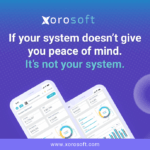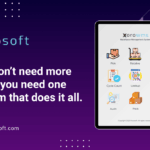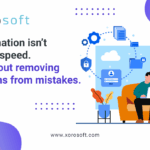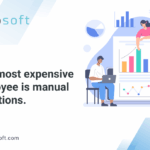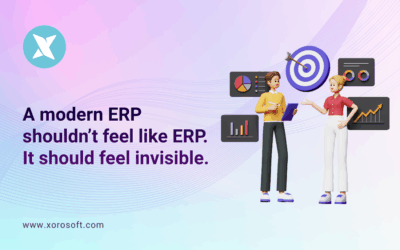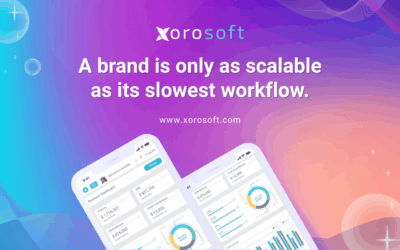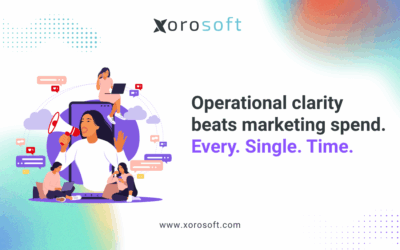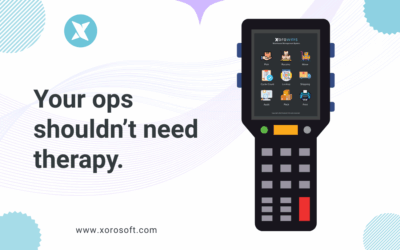
Introduction to XoroERP: Features and Capabilities
As a business owner, I understand the importance of having an efficient system in place to manage various operations. XoroERP, developed by Xorosoft, is a robust ERP (Enterprise Resource Planning) system designed to address the diverse needs of modern businesses. Its features and capabilities offer a comprehensive solution that goes beyond basic accounting functions, providing integrated tools for various departments such as finance, inventory, sales, and customer relationship management.
One of the standout features of XoroERP is its modular structure. This allows businesses to customize their ERP solution based on unique requirements, ensuring that we only implement the features that are necessary for our operations. The system includes advanced modules for inventory management, project management, and financial reporting, which can seamlessly integrate with each other. This level of integration enables us to have real-time visibility into different aspects of our business, helping us make informed decisions.
Moreover, XoroERP is designed to be user-friendly, making it easier for employees to adapt to the system. With an intuitive interface and comprehensive training resources, we can ensure that our team is well-equipped to utilize the software effectively. The platform also supports scalability, allowing us to expand its capabilities as our business grows, which is a crucial factor for any organization looking to maintain its competitive edge.
Understanding ERP Systems: A Comprehensive Business Solution
To truly appreciate the benefits of transitioning to an ERP system like XoroERP, it’s essential to understand what ERP entails. An ERP system is a comprehensive solution that integrates various business processes into a single unified system. This integration facilitates the flow of information across departments, breaking down silos and promoting collaboration. As we’ve experienced in our operations, having access to real-time data from all departments can significantly enhance our decision-making processes.
ERP systems not only manage financial data but also encompass areas such as human resources, supply chain management, and customer relationship management. This holistic approach allows us to streamline operations, reduce redundancy, and improve overall efficiency. By deploying a solution like XoroERP, we can ensure that all departments are aligned and working towards common objectives, ultimately leading to better performance and growth.
Additionally, an ERP solution offers advanced analytics and reporting capabilities. With XoroERP, we can generate detailed reports on various aspects of our business, from sales trends to financial performance. This data-driven approach enables us to identify opportunities for improvement and make strategic decisions that drive profitability.
The Limitations of QuickBooks for Growing Businesses
While QuickBooks has been a reliable accounting tool for many small businesses, it often falls short as a company expands. As I navigated through my own growth journey, I found that QuickBooks lacks the comprehensive features necessary for managing increasingly complex business operations. For one, its limited reporting capabilities make it difficult to gain insights into different areas of the business without manual intervention. This can lead to delays in decision-making and missed opportunities.
Moreover, QuickBooks struggles with scalability. As we began to add more products and services, managing inventory became cumbersome. The software is not designed to handle advanced inventory management tasks, such as tracking stock levels across multiple locations or managing complex supply chains. This limitation can hinder growth and lead to inefficiencies in our operations, prompting the need for a more robust solution.
Another significant drawback of QuickBooks is its lack of integration with other business systems. Many growing businesses, including ours, rely on various software tools for different functions, such as CRM and project management. Unfortunately, QuickBooks does not seamlessly connect with these systems, often resulting in data silos and manual data entry. This can lead to errors and inconsistencies, which can ultimately affect customer satisfaction and business performance.
Key Benefits of Transitioning from QuickBooks to an ERP System
Transitioning from QuickBooks to an ERP system like XoroERP offers numerous advantages that can propel our business forward. First and foremost, the integration of various functions into a single platform allows for better data management. This means we can access real-time information across all departments, enhancing visibility and accountability. The ability to generate comprehensive reports effortlessly empowers us to make data-driven decisions that align with our business goals.
Another significant benefit is the scalability that ERP solutions provide. As our business grows, so do our operational needs. XoroERP can easily adapt to our changing requirements, with additional modules and features that we can implement as needed. This flexibility ensures that we are not constrained by the limitations of our software and can continue to expand without facing significant technological hurdles.
Additionally, an ERP system enhances collaboration among team members. With centralized data, everyone in the organization can access the same information, fostering a culture of transparency and cooperation. This improved collaboration leads to more efficient workflows and ultimately enhances our capacity to serve customers effectively.
How XoroERP Addresses QuickBooks’ Shortcomings
XoroERP is specifically designed to overcome the limitations of traditional accounting software like QuickBooks. One of the primary ways it does this is through its comprehensive inventory management system. Unlike QuickBooks, which often struggles with complex inventory needs, XoroERP provides advanced functionality for tracking stock levels, managing suppliers, and forecasting demand. This capability ensures that we can maintain optimal inventory levels, reducing the risk of stockouts or overstock situations.
Furthermore, XoroERP enhances financial management by offering detailed reporting and analytics tools. While QuickBooks provides basic financial reports, XoroERP enables us to dive deeper into our financial data, identifying trends and anomalies that may require attention. This level of insight is crucial for making informed decisions and ensuring our financial health.
Moreover, XoroERP is built with integration in mind. It connects seamlessly with other business applications, allowing us to create a cohesive technology ecosystem. This integration reduces the need for manual data entry, minimizing errors and freeing up our team to focus on more strategic tasks. By addressing these shortcomings, XoroERP empowers us to operate more efficiently and effectively.
Streamlining Operations with XoroERP’s Integrated Modules
One of the most significant advantages of using XoroERP is the ability to streamline operations through its integrated modules. Each module within XoroERP is designed to work together, providing a cohesive solution for managing different business functions. For instance, the finance module integrates with inventory management, allowing us to see the financial implications of our stock levels in real-time. This integration ensures that we can make timely decisions that positively impact our bottom line.
Additionally, the project management module within XoroERP enables us to track the progress of various initiatives. By linking project tasks to financials and resources, we can more accurately forecast costs and manage budgets. This level of oversight is essential for maintaining control over our projects and ensuring they are delivered on time and within budget.
The customer relationship management (CRM) module also plays a vital role in enhancing our operations. By having a centralized database of customer interactions, we can better understand our clients’ needs and preferences. This information enables us to tailor our services and improve customer satisfaction, which is a key driver of repeat business and referrals.
Advanced Inventory Management with XoroERP
Effective inventory management is crucial for any business, particularly as it grows and diversifies. XoroERP offers advanced inventory management capabilities that surpass those of QuickBooks. One of the standout features is its ability to manage inventory across multiple locations. This functionality allows us to monitor stock levels in real-time, ensuring that we can fulfill customer orders promptly and accurately.
Moreover, XoroERP provides tools for demand forecasting and inventory optimization. By analyzing historical sales data, the system can predict future inventory needs, helping us avoid stockouts and reducing excess inventory. This predictive capability is invaluable in maintaining a lean operation while meeting customer demands efficiently.
Additionally, the inventory management module integrates with other areas of the business, such as purchasing and sales. This interconnectedness means that when we receive an order, the system automatically updates our inventory levels and alerts purchasing when stock is low. This level of automation reduces manual intervention and minimizes errors, ultimately leading to a smoother operation.
Enhancing Financial Visibility and Reporting with XoroERP
Financial visibility and reporting are critical components of effective management. With XoroERP, I can access comprehensive financial reports that provide valuable insights into our business performance. The system offers a wide range of reporting options, from income statements and balance sheets to cash flow forecasts. This diversity allows us to analyze our financial health from multiple angles.
One of the key features of XoroERP is its real-time reporting capabilities. Unlike QuickBooks, which often requires manual data entry and reconciliation, XoroERP pulls data from various modules automatically. This real-time access to financial data enables us to monitor our performance continuously and make adjustments as needed. We can quickly identify trends, assess the impact of business decisions, and ensure that we are on track to meet our financial goals.
Additionally, XoroERP supports regulatory compliance by providing detailed audit trails and documentation. This feature is essential for businesses in regulated industries, as it ensures that we can easily demonstrate compliance with financial reporting standards. By enhancing our financial visibility and reporting capabilities, XoroERP empowers us to make informed decisions and maintain a strong financial foundation.
Scalability and Customization: Why XoroERP Grows with Your Business
One of the primary advantages of transitioning to XoroERP is its scalability and customization options. As our business evolves, our operational needs will change. XoroERP is designed to grow with us, offering the flexibility to add new modules and features as required. This adaptability ensures that we are not left behind as our industry changes or as we expand into new markets.
Furthermore, XoroERP allows for customization to fit our specific business processes. Unlike QuickBooks, which offers limited customization options, XoroERP enables us to tailor workflows, reports, and user interfaces according to our unique requirements. This level of customization ensures that we can operate in a manner that aligns with our business goals and enhances efficiency.
The ability to scale and customize is particularly important in today’s fast-paced business environment. As we continue to innovate and adapt, having a system that can keep pace with our growth is essential. XoroERP provides us with the tools necessary to remain agile and responsive to market demands.
The Implementation Process: Transitioning from QuickBooks to XoroERP
Transitioning from QuickBooks to XoroERP is a significant step that requires careful planning and execution. The implementation process typically begins with a thorough assessment of our current operations and requirements. This assessment helps identify the specific modules and features we will need to implement within XoroERP.
Once we have a clear understanding of our needs, the next step is data migration. This involves transferring existing data from QuickBooks to XoroERP, ensuring that all financial records, customer information, and inventory details are accurately transferred. Data accuracy is crucial during this phase to avoid disruptions in our operations.
After the data migration, it’s essential to provide training for our team. XoroERP offers extensive training resources to help employees familiarize themselves with the new system. By investing time in training, we can ensure a smooth transition and minimize any potential disruptions to our operations. Overall, while the implementation process may seem daunting, the long-term benefits of adopting XoroERP far outweigh the initial challenges.
ROI and Long-term Benefits of Adopting XoroERP
Investing in an ERP system like XoroERP is not just a short-term decision; it is a long-term strategy that can yield substantial returns on investment (ROI). One of the most immediate benefits I noticed is the significant time savings achieved through automation. By streamlining various business processes, we can reduce manual tasks and free up our team to focus on higher-value activities. This efficiency translates into cost savings and improved productivity.
Additionally, the enhanced visibility and reporting capabilities provided by XoroERP enable us to make informed decisions that drive profitability. With access to real-time data, we can quickly identify areas for improvement and capitalize on growth opportunities. This proactive approach to management ensures that we are always one step ahead of the competition.
Moreover, the scalability and customization options offered by XoroERP position us for sustained growth. As our business expands, we can easily adapt the system to meet our changing needs. This flexibility not only ensures that we remain operationally efficient but also enhances our ability to respond to market demands, ultimately contributing to long-term success.
Conclusion: Making the Smart Move to XoroERP for Sustainable Growth
In conclusion, transitioning from QuickBooks to an ERP system like XoroERP is a strategic move that can significantly enhance our business operations. The comprehensive features, advanced inventory management, and robust financial reporting capabilities offered by XoroERP address the limitations of traditional accounting software. By embracing this technology, we position ourselves for sustainable growth and success in an increasingly competitive landscape.
As I have explored throughout this article, the benefits of adopting XoroERP extend far beyond basic accounting functions. With its emphasis on integration, scalability, and customization, XoroERP empowers us to streamline operations, improve collaboration, and make data-driven decisions. This holistic approach is essential for navigating the complexities of modern business.
If you are considering a transition to an ERP system, I encourage you to take the next step. Book a demo with xorosoft to see how XoroERP can transform your business and position you for future success. The journey to enhanced efficiency and growth starts with the right technology, and XoroERP is here to support you every step of the way.
